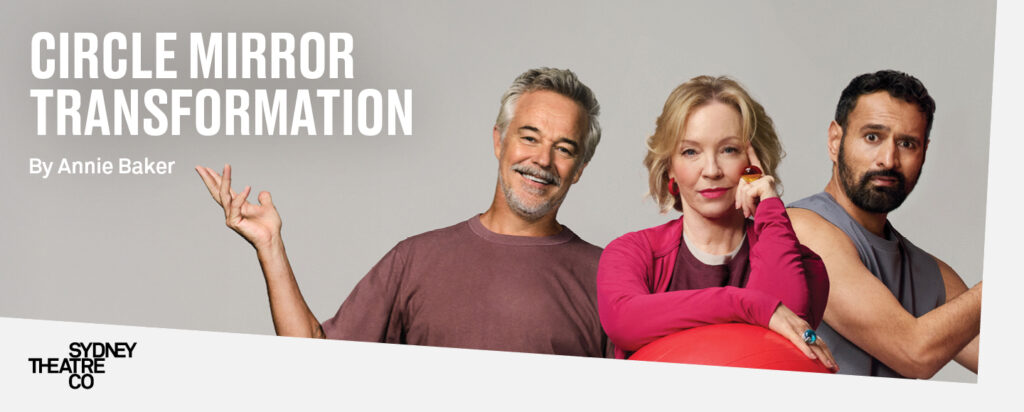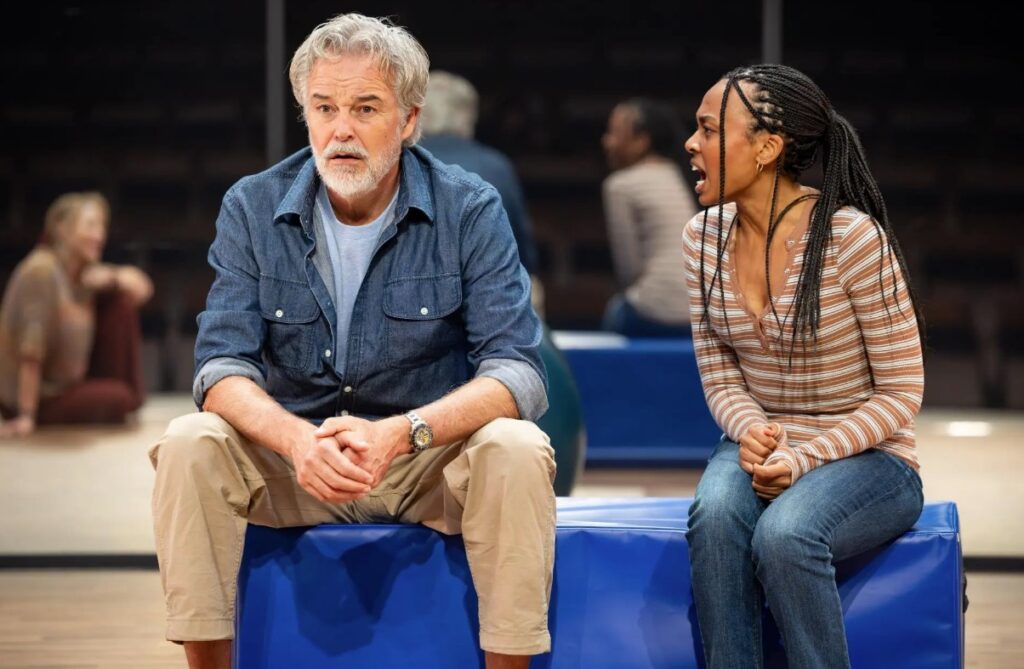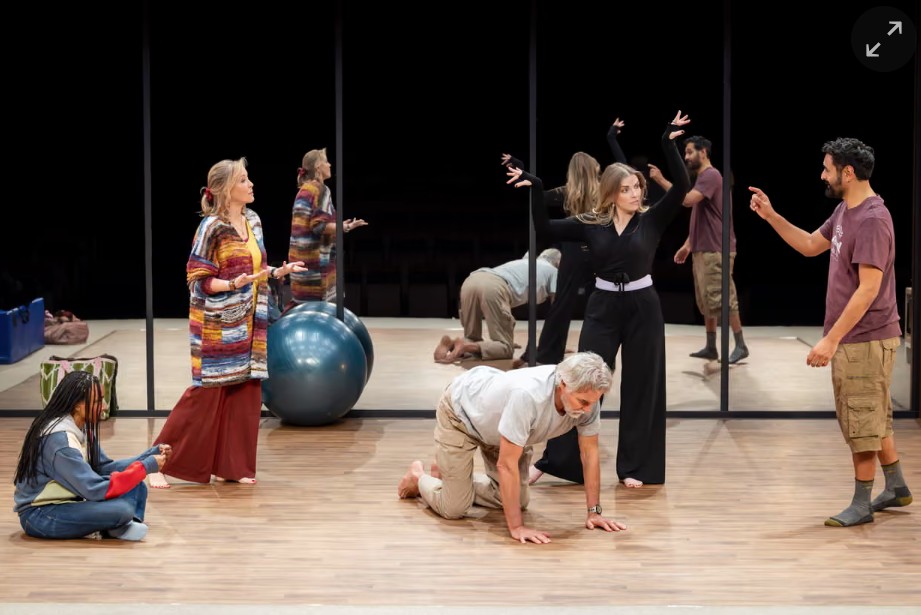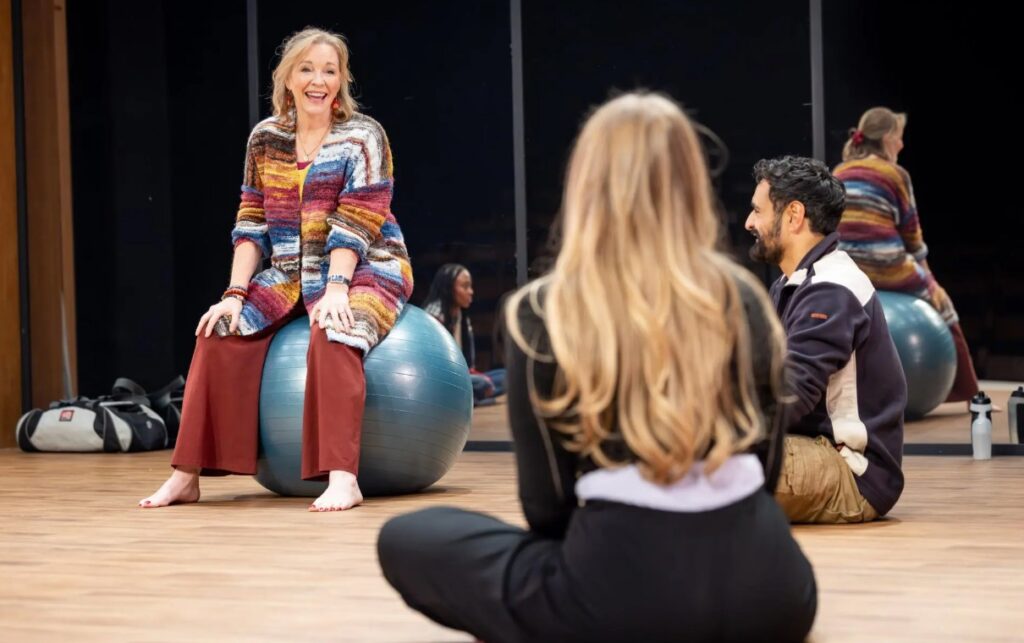
Written by Annie Baker. Directed by Dean Bryant
A thoughtful, humourous and meditative reflection on human vulnerabilities and personal connection
Reviewed by Juliana Payne
Wharf 1 Theatre, Walsh Bay
Until 7 September, 2025
Tickets: https://www.sydneytheatre.com.au/whats-on/productions/2025/circle-mirror-transformation
Type: Contemporary US Drama
If you liked: Anton Chekov, Lally Katz, Hillary Bell
Annie Baker’s Circle Mirror Transformation is not the kind of play that tries to dazzle with high drama or explosive conflict. It tries to burrow into the rhythms of human connection, or lack of connection, with some gentle humour along the way to season the sadness and regret that is inevitable in human lives and relationships. In this STC production, they’ve really leaned into Baker’s signature restrained style, while trying to portray fully realised characters, which is a bit of a tightrope to navigate.
Set in a community centre in a small Vermont town, the play follows five strangers—four adult students and their facilitator—through a six-week adult drama class. Via the humorously awkward theatre exercises and games, some of the characters’ emotional truths begin to surface. What emerges are fragments of their fragile lives, intersecting in small, often funny, and sometimes tragic ways.

Rebecca Gibney as Marty the facilitator, and Cameron Daddo as James, one of the class members, are wonderful to watch as the seasoned and highly proficient actors they are. They effortlessly inhabit and create their unique characters. Nicholas Brown, Ahunim Abebe and Jessie Lawrence as the other class members are all marvellous to watch as well, with very complementary acting styles and entertaining chemistry. Direction by Dean Bryant is careful not to overplay their personal qualities, be it shyness, extroversion or awkwardness. Indeed one could have wished for the playwright to have given all the characters more development: Baker’s so-called restraint actually leaves us wanting more all the way through. Perhaps that is her point, but it leaves us with slight dissatisfaction at the poor utilisation of such skilled actors. There’s only so much that a silent pause can do.
I really wished they had chosen to adapt the play to an Australian setting with natural accents. There was nothing about it that was absolutely American, and it may even have helped the production resonate more fully for a local audience. Baker’s style of writing with its highly mannered and self-consciously American idiom and sensibility rather got in the way of really connecting with the characters.

Jeremy Allen’s set is a perfect rendition of a studio rehearsal room, and the pointed placement of the mirrors as cyclorama means the audience is constantly confronted with it own image integrated with the characters, bringing us closer to them. Similarly, Clemence Williams’ sound design immerses us in the breathing and vocalisations of the class between scenes, intending the cumulative effect to draw the audience into the room with the characters.
Circle Mirror Transformation is a meditative and thoughtful play, and while some may find the pacing rather too slow, I know many loved the time allowed to immerse themselves in the work. The final scene is genuinely moving, with a stunning effect that lifts us out of quotidian domestic cares. It brought to mind some of the quite profound final lyrics from, of all things, The Rocky Horror Picture Show, that also capture the bittersweet themes of this play – “…and crawling on the planet’s face, some insects called the human race; lost in time, lost in space, and in meaning.”
Theatre Thought: How do you feel about re-setting a text in a different location to where it was written?






